 In a sense, an episode like this is quite frustrating for me. As many eps of Blue Period do, only more so, it takes a deep dive on a process I don’t really understand. I’m no artist, and never will be. I do write, but in that field I’m almost entirely self-taught – I never really went through a deconstruction of the process of writing until long after I was obsessed with it. And frankly I don’t know (but would be fascinated to) how much of the experience would cross over. Every creative person does share a certain common perspective, of that I’m certain. But the minds of those who express themselves visually, musically, and through the written word are wired very differently – I’m no less certain of that.
In a sense, an episode like this is quite frustrating for me. As many eps of Blue Period do, only more so, it takes a deep dive on a process I don’t really understand. I’m no artist, and never will be. I do write, but in that field I’m almost entirely self-taught – I never really went through a deconstruction of the process of writing until long after I was obsessed with it. And frankly I don’t know (but would be fascinated to) how much of the experience would cross over. Every creative person does share a certain common perspective, of that I’m certain. But the minds of those who express themselves visually, musically, and through the written word are wired very differently – I’m no less certain of that.
 I’d like to think that those who yearn to express themselves creatively are more akin to each other – no matter the outlet – than those who lack that compulsion. The world would be easier for me to understand if that were the case. And there are certainly elements of Yaguchi’s experience that I strongly relate to, having once been a 17 year-old boy myself. The world is full of pressures exerting themselves on you – family concerns, money, exams, sex. There’s only room for so much in your psyche at any given moment, but once you find that thing that you’re passionate about it demands to be heard, wherever and whenever it decides to. Balancing that is rarely easy for anybody, but it’s almost never so for an adolescent.
I’d like to think that those who yearn to express themselves creatively are more akin to each other – no matter the outlet – than those who lack that compulsion. The world would be easier for me to understand if that were the case. And there are certainly elements of Yaguchi’s experience that I strongly relate to, having once been a 17 year-old boy myself. The world is full of pressures exerting themselves on you – family concerns, money, exams, sex. There’s only room for so much in your psyche at any given moment, but once you find that thing that you’re passionate about it demands to be heard, wherever and whenever it decides to. Balancing that is rarely easy for anybody, but it’s almost never so for an adolescent.
 With exams approaching, things start to get serious at the cram school. The class is split into six smaller classes, each with a different teacher – and for the record, I think it’s no coincidence that both Yaguchi and Kuwana-san ended up with Ooba-sensei. She knows who the interesting students are better than anybody and she doesn’t want to miss any good moments. The focus of the training turns to abstract works, and this is where Yaguchi’s relative inexperience really hinders him. He’s focused on technique, composition – and up to now, he’s pretty much only drawn something he could see in front of him.
With exams approaching, things start to get serious at the cram school. The class is split into six smaller classes, each with a different teacher – and for the record, I think it’s no coincidence that both Yaguchi and Kuwana-san ended up with Ooba-sensei. She knows who the interesting students are better than anybody and she doesn’t want to miss any good moments. The focus of the training turns to abstract works, and this is where Yaguchi’s relative inexperience really hinders him. He’s focused on technique, composition – and up to now, he’s pretty much only drawn something he could see in front of him.
 This feeling of being “sucked in” to an artwork – I’ve felt it rarely (more so by music or books), and Yaguchi recognizes that its absence in his own pieces reflect a shortcoming in him. His first response to “draw something important to you” is “Bond” – the connections between people that he’s felt in his life. He expresses this bond through strings, but Ooba-sensei is not overly impressed. She’s pretty plain-spoken, to the point where you can tell when she’s just trying to spare feelings (which I think is quite intentional on her part).
This feeling of being “sucked in” to an artwork – I’ve felt it rarely (more so by music or books), and Yaguchi recognizes that its absence in his own pieces reflect a shortcoming in him. His first response to “draw something important to you” is “Bond” – the connections between people that he’s felt in his life. He expresses this bond through strings, but Ooba-sensei is not overly impressed. She’s pretty plain-spoken, to the point where you can tell when she’s just trying to spare feelings (which I think is quite intentional on her part).
 As Ooba-sensei seeks to polish this rough stone into a gem than can pass muster at Geidai, Saeki-sensei concerns herself more with the soul of the artist as a young man. She pushes him to try his hand at the massive F-100 canvas (no, I had no idea such designations existed) that Mori-sempai was using for her Angel painting. Yaguchi initially declines, but after continuing to struggle with abstracts at the cram school eventually comes around and faces the daunting challenge of making a piece of art big enough (in every sense) to fill the space before him.
As Ooba-sensei seeks to polish this rough stone into a gem than can pass muster at Geidai, Saeki-sensei concerns herself more with the soul of the artist as a young man. She pushes him to try his hand at the massive F-100 canvas (no, I had no idea such designations existed) that Mori-sempai was using for her Angel painting. Yaguchi initially declines, but after continuing to struggle with abstracts at the cram school eventually comes around and faces the daunting challenge of making a piece of art big enough (in every sense) to fill the space before him.
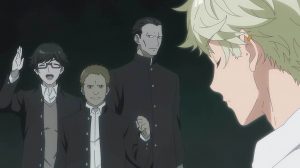 Meanwhile Yuka-san’s situation seemingly continues to deteriorate. It’d be no surprise that there were issues with their father, who makes it pretty clear he’s dismayed over the course his son’s life has taken. That’s a lot for a young person to shoulder, to be sure, on top of all the other things Yuka is dealing with. Eventually Yuka accepts Mori-san’s invitation to visit her on campus and invites Yaguchi along – but it’s really just a pretext to get Yaguchi to visit Mori himself. And that doesn’t even end up happening, though he does see her current work (a meditation on Buddhist prayer) and finds himself once more enraptured by it.
Meanwhile Yuka-san’s situation seemingly continues to deteriorate. It’d be no surprise that there were issues with their father, who makes it pretty clear he’s dismayed over the course his son’s life has taken. That’s a lot for a young person to shoulder, to be sure, on top of all the other things Yuka is dealing with. Eventually Yuka accepts Mori-san’s invitation to visit her on campus and invites Yaguchi along – but it’s really just a pretext to get Yaguchi to visit Mori himself. And that doesn’t even end up happening, though he does see her current work (a meditation on Buddhist prayer) and finds himself once more enraptured by it.
 Whenever the closed-eyes character opens them, you better pay close attention to the next thing they say. And between Saeki-sensei’s advice and the inspiration he gets from Mori’s work, Yaguchi begins to see the light. Good art isn’t about process, and composition is a tool to create art, not the art itself. Saeki basically tells him that his early work was more “good art” than his more recent pieces, where he’s mastered technique but become obsessed with the spectre of failure. The art comes from the uniqueness of the artist’s perspective – the rest of it is just a means of giving it physical form.
Whenever the closed-eyes character opens them, you better pay close attention to the next thing they say. And between Saeki-sensei’s advice and the inspiration he gets from Mori’s work, Yaguchi begins to see the light. Good art isn’t about process, and composition is a tool to create art, not the art itself. Saeki basically tells him that his early work was more “good art” than his more recent pieces, where he’s mastered technique but become obsessed with the spectre of failure. The art comes from the uniqueness of the artist’s perspective – the rest of it is just a means of giving it physical form.
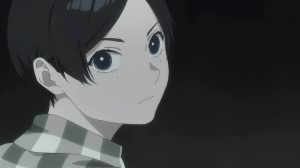 Yaguchi’s next “Bond” is a stunning leap forward, and sets him off on a hot streak – though he learns a lesson when he gets conservative with his contest piece, and effectively copies himself. Whether we like it or not the steps backwards are as much a part of the process as the forward leaps. And being reminded that his mother still doesn’t really understand him is painful, too. Yaguchi is at a bit of a low ebb when Yotasuke-kun – gone from his life but not forgotten – places a very surprising phone call, which promises to take events in a very interesting direction next week.
Yaguchi’s next “Bond” is a stunning leap forward, and sets him off on a hot streak – though he learns a lesson when he gets conservative with his contest piece, and effectively copies himself. Whether we like it or not the steps backwards are as much a part of the process as the forward leaps. And being reminded that his mother still doesn’t really understand him is painful, too. Yaguchi is at a bit of a low ebb when Yotasuke-kun – gone from his life but not forgotten – places a very surprising phone call, which promises to take events in a very interesting direction next week.


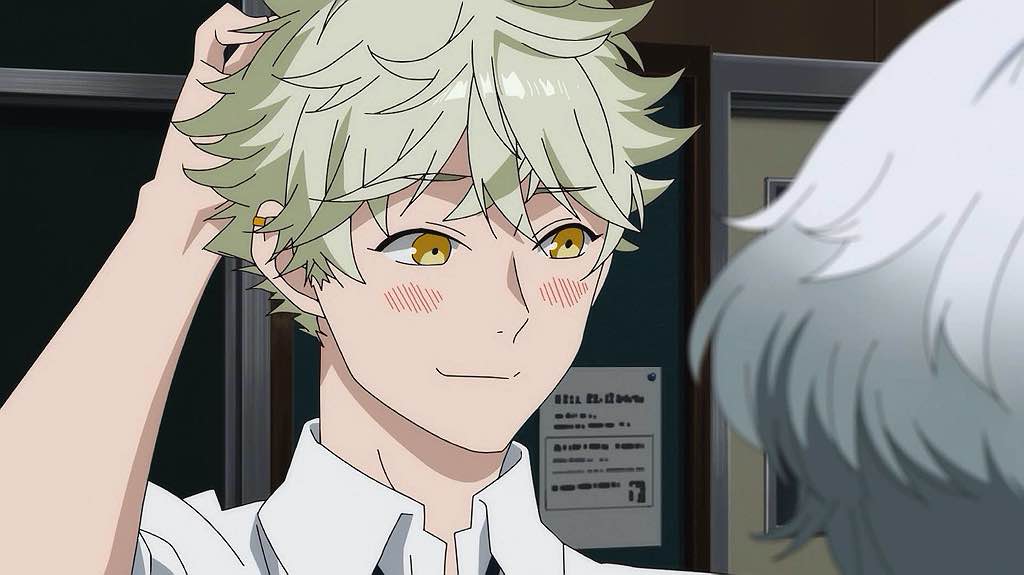
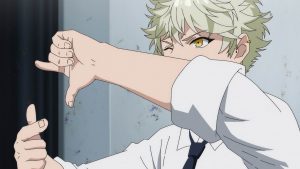
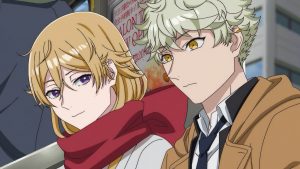
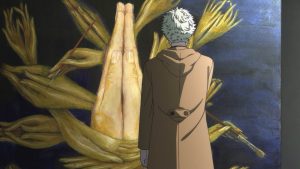
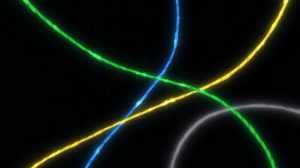
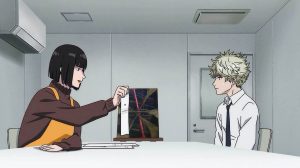
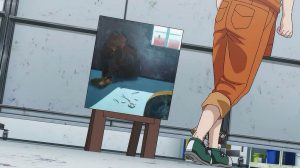
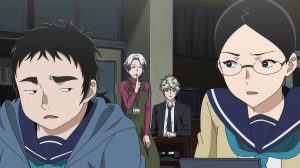
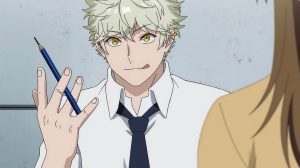
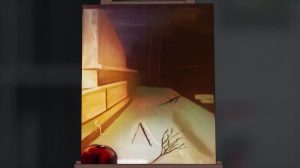



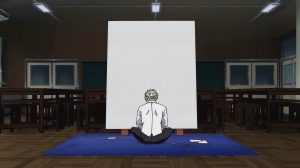
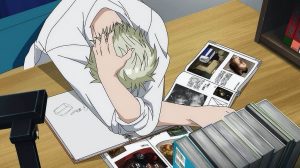

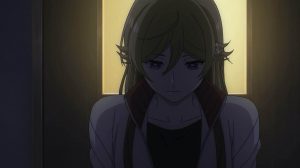
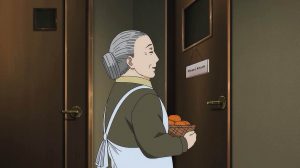


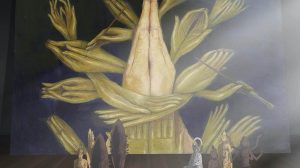






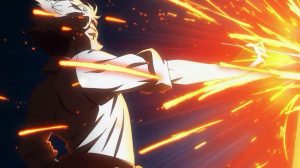
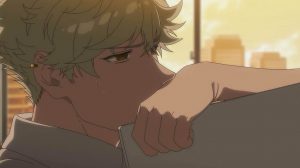

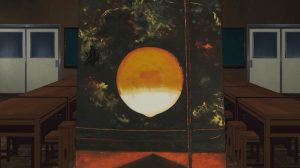

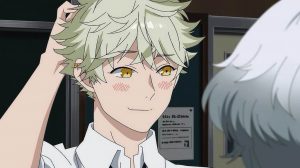

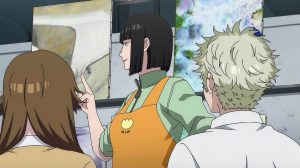

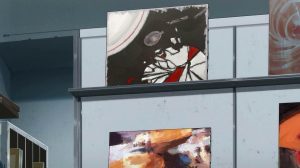
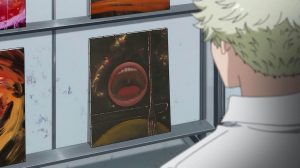



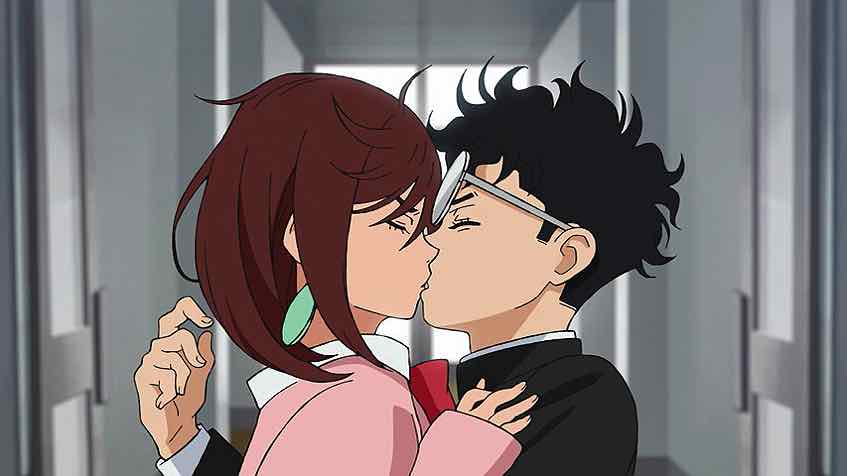
An
October 24, 2021 at 9:27 amI honestly don’t think creatives are truly wired differently. The fields of music, writing, art, and design are certainly different. Topics that Blue Period covers, such as impostor syndrome (this isn’t actually named in the series as such, but it’s fairly obvious with Yatora) and the argument of “talent/genius vs. hard work” are quite common in all fields. I’m a grown ass adult and I still experience all this and more. I may not be knowledgeable in fine art, but as a designer, I latched onto Blue Period (the manga) very fast. It’s extremely relatable.
Also, writing is no less a creative endeavor, IMO. You still have to find the right words and put those together in a cohesive way for readers to comprehend (and not get bored), and I don’t think just anyone can do that.
Guardian Enzo
October 24, 2021 at 9:39 amI certainly (as a writer) don’t think writing is less a creative endeavor, but I do think it’s a somewhat different one.
One thing I enjoy about this series is that it really makes you think about stuff like this. Like I said – it’s deep.
leongsh
October 24, 2021 at 9:40 pmOoba-sensei is giving Yatora good guidance and constructive criticism. She is prodding him to come out from his shell. Doing what a good mentor does. If he had not come to the Art cram school, he would not have improved by those leaps and bounds. Plus at the cram school, he has peers that he can compare himself to and be challenged by them.
Guardian Enzo
October 25, 2021 at 6:45 amBoth teachers are helping him in different ways. It’s almost as if they were intentionally working together.
John
November 7, 2021 at 9:49 amI’m really enjoying the direction you’ve been taking with these Blue Period reviews, Enzo! I find your thoughts on writing and attempts at finding some common creative ground with art quite interesting. If you’re open to sharing, I’d love to know more about how you became a writer. The pros and cons of a formal education vs teaching yourself also feels like something that applies to most artistic fields — I’m sure the time, experience, and knowledge of the education can be invaluable, but there’s also the potential to burn out and lose your love for it, or for poor teaching to box you in and inhibit your creativity, not to mention the financial cost.
Guardian Enzo
November 7, 2021 at 9:57 amIt’s a complicated topic, to be sure. I think the short answer is that reading was my earliest passion, and if I didn’t have some sort of creative outlet I couldn’t function. I mean, I love music and art but having no aptitude for either makes it kind of an easy choice, but it goes deeper than that.
As for self-taught vs. instruction, I had some very good English teachers and profs over the years, no doubt. But in the end I write in a fashion that’s totally self-created, and really doesn’t conform to any of the instruction I had. It works for me, that’s al I know.